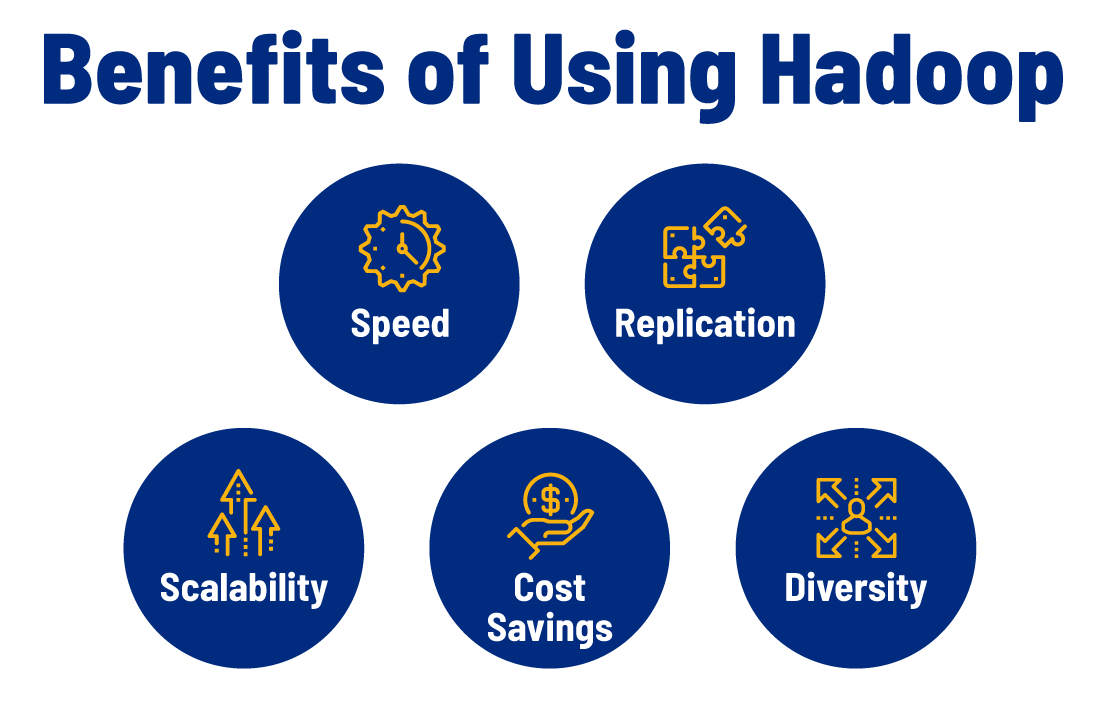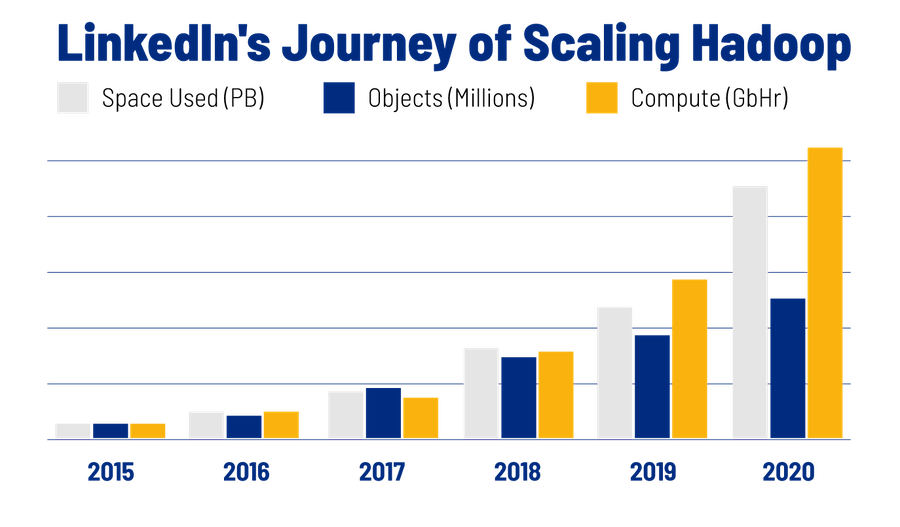What Are Some Alternatives to Hadoop?
There are several other big data processing alternatives to explore when considering how to become a digital marketer. While these can be used independently of Hadoop, they can also work as part of the same ecosystem or over an HDFS basis. Some Hadoop alternatives may provide options other than MapReduce for processing data because it is less efficient for interactive queries and real-time processing, which have become more important with the rise of AI and other technologies. These alternatives may work in addition to Hadoop or as a completely different system, but experience with Hadoop is often useful in operating any type of big data infrastructure.
How is Hadoop different from Spark?
Apache Spark is one of the more prominent Hadoop alternatives. Spark is a data-processing engine that can be used on top of HDFS to make use of Hadoop’s storage and distribution capacities while using its libraries for streaming, real-time processing, graphs and SQL queries.
Speed
Spark is known for its speed and a variety of multi-feature APIs that allow data scientists to get rapid results from large data set queries. It also has a significant speed advantage over Hadoop’s MapReduce function.
Processing, not storage
While Hadoop is an entire ecosystem, Spark is a form of processing logic that can only work with stored data. For this reason, HDFS is often used to store the data processed by Spark.
Memory access
Although Spark is a faster option, it requires greater stores of RAM and other processing power compared to Hadoop. Where memory is a concern and businesses have more time to process, traditional Hadoop may be a better option.
How is Hadoop different from Storm?
Apache Storm is also an open-source tool used to process massive amounts of data and perform analytics. Like Spark, a Hadoop FileSystem can work well as an underlying layer to Storm data.
Real-time or batch processing
While Hadoop with MapReduce is designed to process data in batches, Storm is designed to do so in real-time, without a defined beginning or end. It is intended for streams of data and can be ideal for companies that need to constantly respond to new data input.
Fast data and big data
Like Adobe Spark, Adobe Storm does not store the data; it processes the data stored elsewhere. This can be data stored in another cloud framework or HDFS data. While Storm is designed to process data quickly, Hadoop can store large amounts of massive data as well as process it.
How is Hadoop different from Google BigQuery?
Google BigQuery is a data platform used for big data analysis. It operates using SQL — without managing the data infrastructure — because it relies on Google hardware, which is constantly being updated and upgraded.
Open-source vs. closed-source
While Google BigQuery offers constantly updated software and hardware, it is also a closed-source system that must run on Google’s servers. However, since Hadoop is an open-source framework, it can be utilized in any environment.
Proprietary approach
Similarly, the technology used in Google BigQuery is proprietary — rather than open to change or input from the community. While Hadoop has a stiffer learning curve, it has the benefit of being open-source and more quickly adapting to user requirements due to its robust community of users and developers.
Speed
Google BigQuery can process information in minutes or seconds, even information that would take hours to process in Hadoop. It is extremely responsive due to the quality of Google’s cloud servers.
 Live Chat
Live Chat


